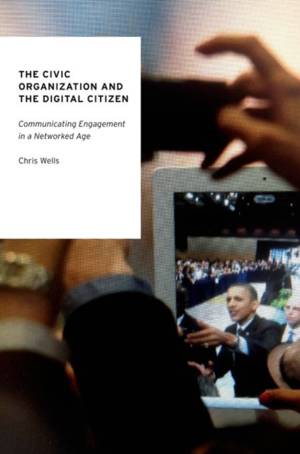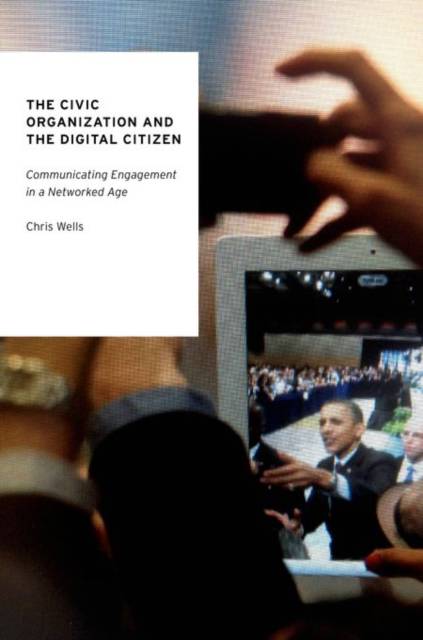
- Retrait gratuit dans votre magasin Club
- 7.000.000 titres dans notre catalogue
- Payer en toute sécurité
- Toujours un magasin près de chez vous
- Retrait gratuit dans votre magasin Club
- 7.000.0000 titres dans notre catalogue
- Payer en toute sécurité
- Toujours un magasin près de chez vous
The Civic Organization and the Digital Citizen
Communicating Engagement in a Networked Age
Chris Wells
59,95 €
+ 119 points
Format
Description
The powerful potential of digital media to engage citizens in political actions has now crossed our news screens many times. But scholarly focus has tended to be on "networked," anti-institutional forms of collective action, to the neglect of advocacy and service organizations. This book investigates the changing fortunes of the citizen-civil society relationship by exploring how social changes and innovations in communication technology are transforming the information expectations and preferences of many citizens, especially young citizens. In doing so, it is the first work to bring together theories of civic identity change with research on civic organizations. Specifically, it argues that a shift in "information styles" may help to explain the disjuncture felt by many young people when it comes to institutional participation and politics. The book theorizes two paradigms of information style: a dutiful style, which was rooted in the society, communication system and citizen norms of the modern era, and an actualizing style, which constitutes the set of information practices and expectations of the young citizens of late modernity for whom interactive digital media are the norm. Hypothesizing that civil society institutions have difficulty adapting to the norms and practices of the actualizing information style, two empirical studies apply the dutiful/actualizing framework to innovative content analyses of organizations' online communications-on their websites, and through Facebook. Results demonstrate that with intriguing exceptions, most major civil society organizations use digital media more in line with dutiful information norms than actualizing ones: they tend to broadcast strategic messages to an audience of receivers, rather than encouraging participation or exchange among an active set of participants. The book concludes with a discussion of the tensions inherent in bureaucratic organizations trying to adapt to an actualizing information style, and recommendations for how they may more successfully do so.
Spécifications
Parties prenantes
- Auteur(s) :
- Editeur:
Contenu
- Nombre de pages :
- 272
- Langue:
- Anglais
- Collection :
Caractéristiques
- EAN:
- 9780190203627
- Date de parution :
- 14-07-15
- Format:
- Livre broché
- Format numérique:
- Trade paperback (VS)
- Dimensions :
- 155 mm x 231 mm
- Poids :
- 408 g

Les avis
Nous publions uniquement les avis qui respectent les conditions requises. Consultez nos conditions pour les avis.






